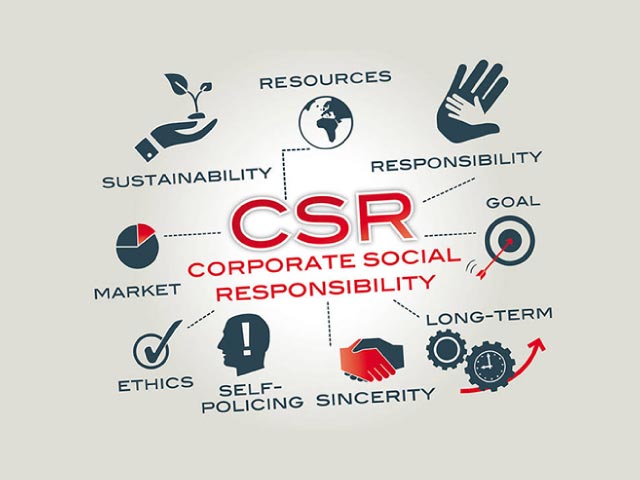For that reason, the citizens of the European Union rightly expect that business organizations fully understand the negative and positive implications of their operations on the environment and society. And, hence, manage, prevent, and mitigate adverse impacts that such operations may cause, including within the global supply chain. And living up to the duty often gets perceived as Corporate Social Responsibility or Responsible Business Conduct. Several public authorities, inclusive of the European Union, have a crucial role in encouraging and supporting business organizations to carry out their operations responsibly.
Over the past years, the European Union introduced a strategic mix of mandatory and voluntary actions designed to promote Corporate Social Responsibility or Responsible Business Conduct and execute the United Nations guiding principles on human rights and business practice, as well as the United Nations 2030 agenda for friendly and sustainable development. As of 2011, the European Union had adopted a renewed strategy for Corporate Social Responsibility, which involved horizontal practices and approaches that promote Responsible Business Conduct with more accurate approaches for policy areas and individual sectors. And following up on the strategy implemented, the European Union published a staff working guideline in March 2019, which outlined an overview of the European External Action Service’s and the Commission’s progress in implementing Responsible Business Conduct, and human rights as well as a business practice.
It is reasonable that the idea of Corporate Social Responsibility implies a form of strategic self-regulation that may get expressed in strategies or initiatives, depending on organizational goals. In essence, many business organizations may communicate their efforts to internal and external stakeholders via Corporate Social Responsibility reports. It is worth noting that different instances may exist of what the term “Socially Responsible” may mean from one business organization to another (Mazur-Wierzbicka, 2015). Companies often get directed by the concept of the triple bottom line, which instructs that an organization should get committed to evaluating its environmental and social impact, profits, and sustainability efforts; the adage “planet, people, profit” often gets used to summarize the force behind the triple bottom line.
As such, as of the financial year of 2017, specific business organizations have been directed to submit non-financial statements on the organizations’ compliance with Corporate Social Responsibility for every financial year on grounds defined by the Commission’s Corporate Social Responsibility Directive Implementation Act of 2017 (Doh & Guay, 2006). The submissions include crucial information about social and environmental matters, respect for human rights, treatment of workers, and anti-corruption. Following the directions stipulated by the European Union, the obligations of business organizations most certainly would get extended as part of the European Green Deal implementation. The circle of business organizations subject to submission of requirements is to get extended to involve different large partnerships and corporations treated as such on grounds of limitation liability, specifically Co. KGs and GmbH (Ricci et al., 2019). Additionally, all major insurance and banking organizations would get affected by the drastic change in the already existing standards of submission, which have gotten regarded as insufficient, got revised in 2022 and were then mandatory for the reporting of 2023, and for medium and small-sized listed organizations from the year 2026 since the directive got transposed into law as of 1st December 2022.
Over the past years, the European Union introduced a strategic mix of mandatory and voluntary actions designed to promote Corporate Social Responsibility or Responsible Business Conduct and execute the United Nations guiding principles on human rights and business practice, as well as the United Nations 2030 agenda for friendly and sustainable development. As of 2011, the European Union had adopted a renewed strategy for Corporate Social Responsibility, which involved horizontal practices and approaches that promote Responsible Business Conduct with more accurate approaches for policy areas and individual sectors. And following up on the strategy implemented, the European Union published a staff working guideline in March 2019, which outlined an overview of the European External Action Service’s and the Commission’s progress in implementing Responsible Business Conduct, and human rights as well as a business practice.
Corporate Social Responsibility
The European Union defined Corporate Social Responsibility as a strategic responsibility of business organizations or enterprises for their implications on society; and, hence, should be organization-led. It is, therefore, reasonable that business organizations may remain socially responsible by following stipulations guidelines, and regulations, as well as integrating environmental, social, consumer, ethical, and human rights need into business operations. Public authorities equally play an integral and supportive role through voluntary measures, and often where necessary, complement stipulated regulations. As such, Corporate Social Responsibility reflects the idea that organizations have an obligation to the society and environment that surrounds them (Forte, 2013). Business organizations that embrace Responsible Business Conduct typically get organized in a way that extensively empowers the business organizations to act responsibly and have a positive impact on the globe.It is reasonable that the idea of Corporate Social Responsibility implies a form of strategic self-regulation that may get expressed in strategies or initiatives, depending on organizational goals. In essence, many business organizations may communicate their efforts to internal and external stakeholders via Corporate Social Responsibility reports. It is worth noting that different instances may exist of what the term “Socially Responsible” may mean from one business organization to another (Mazur-Wierzbicka, 2015). Companies often get directed by the concept of the triple bottom line, which instructs that an organization should get committed to evaluating its environmental and social impact, profits, and sustainability efforts; the adage “planet, people, profit” often gets used to summarize the force behind the triple bottom line.
Importance of Corporate Social Responsibility
For business organizations, Responsible Business Conduct and Corporate Social Responsibility provide significant benefits from the perspective of cost saving, risk management, customer relationships, access to capital, eventual profit, sustainability of operations, and ability to innovate. For the European Union and the economy of European nations, Responsible Business Conduct and Corporate Social Responsibility make business organizations more innovative and sustainable, which eventually contributes to more sustainable economies (Tschopp, 2005). For Society, Responsible Business Conduct and Corporate Social Responsibility provide a set of critical values on which the European Union may build a substantively cohesive society and upon which the commission may base a transition to sustainable economic systems.The Strategy of European Commission on Corporate Social Responsibility
The commission exceptionally promotes Corporate Social Responsibility within the European Union and encourages business organizations to meet international principles and guidelines. In particular, the policy of the European Union has a basis in the 2011 renewed strategy for Corporate Social Responsibility, whose primary objective reflects on aligning global approaches and the European nations to Corporate Social Responsibility. The strategy highlights the significance of focusing on the visibility of Corporate Social Responsibility and disseminating acceptable practices via the integration of Corporate Social Responsibility into training, research, and education (Perrini, 2006). The same strategy further bolsters organizations’ disclosure of environmental and social information, as well as self and co-regulation procedures.As such, as of the financial year of 2017, specific business organizations have been directed to submit non-financial statements on the organizations’ compliance with Corporate Social Responsibility for every financial year on grounds defined by the Commission’s Corporate Social Responsibility Directive Implementation Act of 2017 (Doh & Guay, 2006). The submissions include crucial information about social and environmental matters, respect for human rights, treatment of workers, and anti-corruption. Following the directions stipulated by the European Union, the obligations of business organizations most certainly would get extended as part of the European Green Deal implementation. The circle of business organizations subject to submission of requirements is to get extended to involve different large partnerships and corporations treated as such on grounds of limitation liability, specifically Co. KGs and GmbH (Ricci et al., 2019). Additionally, all major insurance and banking organizations would get affected by the drastic change in the already existing standards of submission, which have gotten regarded as insufficient, got revised in 2022 and were then mandatory for the reporting of 2023, and for medium and small-sized listed organizations from the year 2026 since the directive got transposed into law as of 1st December 2022.












